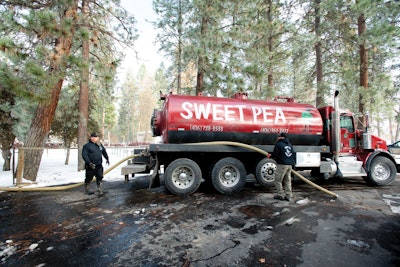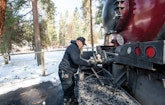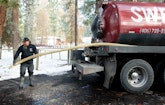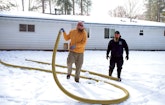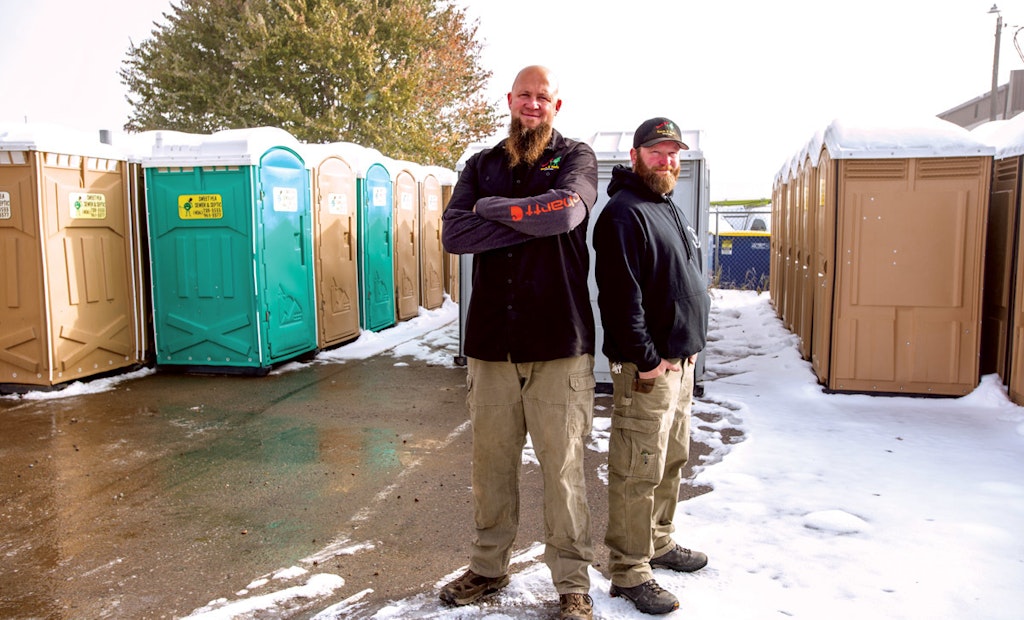
Owners Adam Bartels, left, and Russ Hood are shown in the Sweet Pea Sewer and Septic yard. Most restrooms came from Satellite Industries. But a variety of other inventory came along with acquisitions of other area service companies. (Photos by Jessica Lowry Vizzutti)
Bolstered by a series of acquisitions and a strong economic tailwind in Missoula, Montana, business partners Adam Bartels and Russ Hood have transformed an already sound company — Sweet Pea Sewer and Septic — into a significantly larger operation.
“We knew Sweet Pea had good...
